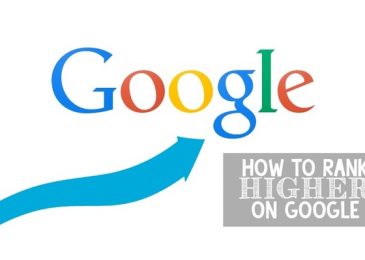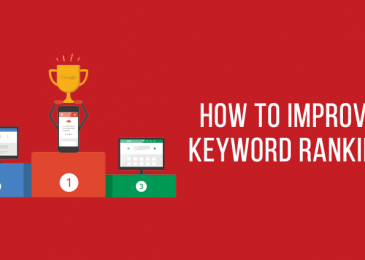Here are the top 10 ways you can make your local SEO successful.
1. Create and Optimize Your Google My Business Account
To get started, you need to claim your business on Google My Business. This establishes your presence, for free, on the search engine, and it means your business will also show up on Google Maps. Not only will your business appear in search results on all devices, but, if Google authenticates your business as legitimate, it could also surface in the valuable sidebar space of a Google search.

To optimize Google My Business, ensure that you:
- Verify your listing
- Provide accurate and up-to-date information
- Include your logo, hours of operation, acceptable payment methods, the product or service you sell, and plenty of images
- Encourage your customers to review your business online
- Respond sincerely to customer reviews
- Create content within your account with Google Posts
2. Get Regular Reviews from Happy Customers
Getting your customers to write glowing reviews for your business doesn’t just optimize your Google My Business presence; it also encourages more local customers to buy from you. BrightLocal’s 2017 Local Consumer Review Survey reveals that 85% of customers believe online reviews as much as personal recommendations.

encourage customers to leave reviews:
- Ask for a review in person after the close of a sale
- Send a post-purchase email or text asking customers to write a review (but only after you’ve screened them via an internal survey to ensure you’re not approaching dissatisfied customers)
- Respond to existing reviews in a professional way, thanking reviewers and addressing complaints in not-so-favorable reviews
Note: Google says it’s okay to ask your customers for reviews while Yelp actively discourages it.
3. Optimize for Voice Search
Voice search will grow rapidly in the coming years. Therefore, in local SEO, it’s vital to optimize for how people ask questions when they speak into devices, as opposed to how they type out their searches.
Essentially, your customers use more long-tail keywords when doing voice searches compared with regular search. Because of this, you’ll also have to adjust the SEO of your content to fit the more conversational tone of someone speaking. For example, you’ll want to account for the traditional question starters (who, what, when, where, why and how).

It’s also crucial to consider user intent when optimizing for voice, as these searches are most often performed when the user needs a specific piece of information. If they’re baking and ask Alexa to convert tablespoons to cups, they’re expecting a quick and useful answer. If a potential customer uses voice search to ask what your business’s hours are, this information should also be readily available
4. Create Content Based on Local News Stories or Events
There’s nothing quite like authoring content that speaks or relates directly to a local issue to grab your local customers’ attention.
Some strategies include:
- Writing blog posts around local news stories, activities, or events
- Creating videos about local charities or causes that your business supports
- Setting up location-specific webpages on your website with high-quality local content if you serve different parts of a region

Let’s say you’re a local real estate business. You can create different pages, one for each of your locations, where you can feature hyperlocal content around news events or changes in the local real-estate market. This strategy could also help you get ranked for each specific location.
5. Optimize Your Website for Mobile
A 2018 Stone Temple study that looked at 2017’s mobile vs. desktop trends found that the shift to mobile is occurring faster than expected. Mobile visits to websites grew from 57% in 2016 to 63% in 2017, and the overall visits to websites from desktop shrunk from 43% in 2016 to just 37% in 2017.
Another 2017 study from Acquisio determined that traffic from local searches can be especially lucrative, with a remarkable 75% of all mobile searches that exhibit local intent actually producing in-store, offline visits within 24 hours.
This confirms that you have to optimize your website for mobile to be a player in local SEO (and, really, for good SEO period).

Here are some tips to achieve this:
- Ensure your website loads quickly (no more than three seconds)
- Use bigger fonts that are easy to read
- Use images and copy sparingly, conveying only the information you need (no room for filler on a mobile screen!)
- Ensure intuitive UI for great UX
6. Home in on Local Keywords
Your keywords should be relevant to local customers. It only makes sense, doesn’t it?
Google’s own Keyword Planner lets you filter keyword searches based on location so you get an idea of the popular search terms for a given region. This lets you create a list of locally relevant keywords to target. Once you have them, they should make appearances in your site’s meta content, copy, and URLs.

Also, include mentions of region-specific landmarks and hotspots in your content. For instance, if your local restaurant serves dinner in downtown Seattle, include references to “dining by the Space Needle” or “just steps from the Space Needle” on your site.
7. Use Location Pages or a Location-Specific “About Us” Page
Location pages are a must if your business has more than one location in an area. These pages need to provide the following, at a minimum:
- Store hours
- Name, address, and phone number
- Individualized descriptions
- Testimonials
- Promotions
- Parking availability
- Google Maps attached to each location page
Take care when you have multiple locations, because you need to create unique content for each page.

If you only have one location, creating an “About Us” page that focuses on local, relevant information is essential. For example, if you have a florist shop, your “About Us” page is the perfect spot to mention your shop’s involvement in supplying the flowers for any parades in your town or city.
8. Focus on Link Signals (Get High-Quality Backlinks)
According to Moz’s 2017 Local Search Ranking Factors study, link signals are the first- and second-most important factors for local pack (or snack pack) results and for localized organic results, respectively. Link signals are backlinks pointing to your site.
It’s vital to get links to boost your local SEO, but their quality is important.

Here are some tips on getting high-quality backlinks:
- Create high-quality content on your site so others want to link to your content
- Guest blog on reputable sites with a high domain authority
- Engage with local influencers on social media or by email to get them to link back to you
Read more 10 best landing page practices to improve your SEO
_______________________________________________________________________________
For more details about our seo service packages, pls contact us
BIGBIGSEO Team
Email: bigbigseo@gmail.com
Skype: bigbigseo
https://www.facebook.com/bigbigseo
Thank you!




